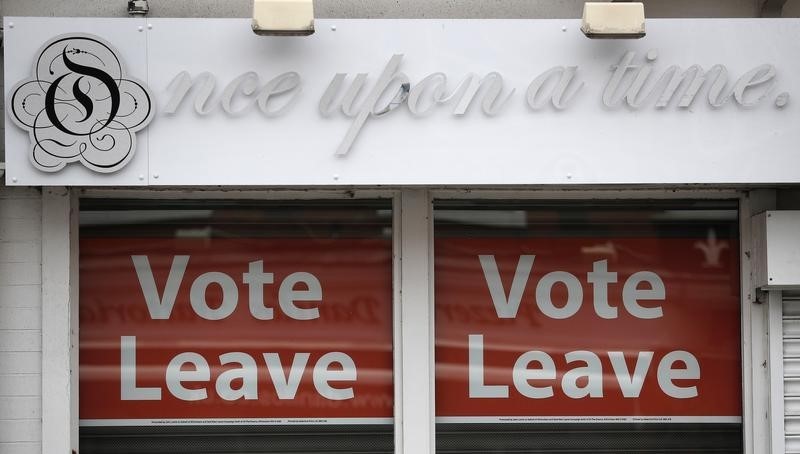LONDON (Reuters) - The "Leave" camp was 10 points ahead of "Remain" with less than two weeks to go before Britain's referendum on whether to stay in the European Union, according to a poll by ORB for The Independent newspaper published on Friday.
It was the biggest lead enjoyed by those wanting Britain to quit the 28-member bloc since the poll series started a year ago, The Independent said.
Sterling lost more than half a cent against the dollar soon after the poll was released.
Britons will vote on June 23 on whether to leave the world's largest free trading area, a decision with far-reaching implications for politics, the economy, trade, defense and migration in Britain and the rest of the EU.
ORB's online survey of 2,000 people, conducted on June 8-9, suggested that "Leave" was on 55 percent, versus 45 percent for "Remain".
The data was weighted to take account of how likely to vote people said they were. Those surveyed were not given the option of answering "don't know".
In an article accompanying the poll results, The Independent said "Leave" had extended its lead by four points since the last poll in the series, conducted in April. A year ago, "Remain" was ahead by 10 points.
The latest ORB poll for The Independent found that 78 percent of "Leave" supporters said they would definitely vote, while only 66 percent of those favoring "Remain" said the same.
Overall, opinion polls have been painting a confusing picture, with those conducted online tending to show "Leave" doing better than in those conducted by telephone -- with a few exceptions.
Some recent polls have found "Remain" narrowly ahead, while others have suggested "Leave" was in the lead.
The British polling industry is under pressure over its surveys on the EU referendum question after it failed to predict the Conservative victory in last year's general election. For months, the polls were pointing to an inconclusive outcome.
The mixed picture painted by the EU referendum polls has heightened market jitters about the outcome, with sterling repeatedly reacting to poll results.
